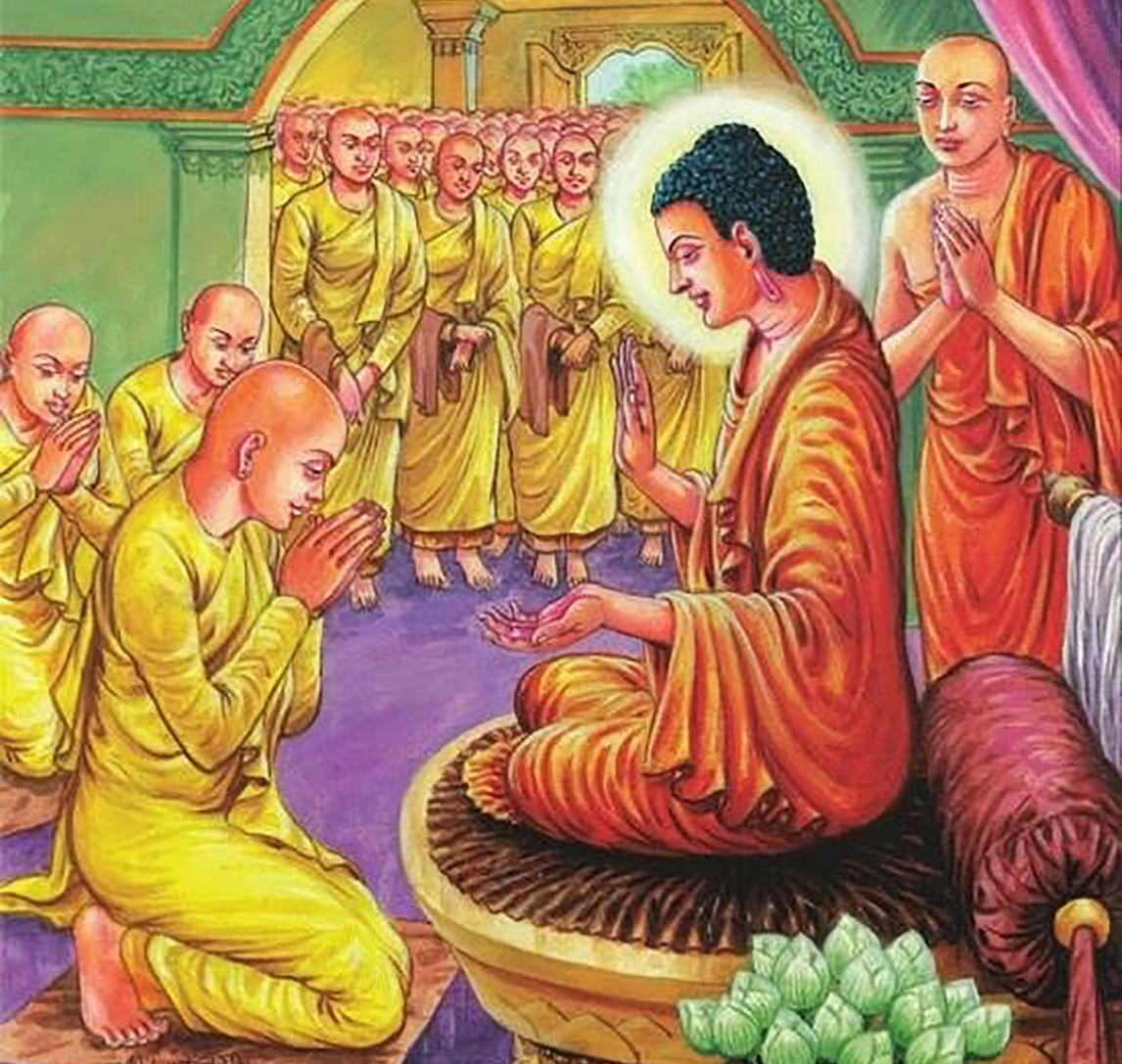
Two Dhamma Talks by Ajahn Chah
Still, Flowing Water
Okay, everyone, pay attention. Don’t let your mind focus on this person or that. Create the feeling that right now you’re sitting alone on a mountain or in a forest somewhere, all by yourself. What do you have sitting here right now? Just body and mind, that’s all, only these two things. Everything sitting in this physical lump here is “body.” “Mind” is what’s aware of sense impressions and is thinking in the present. These two things are also called nama and rupa. Nama refers to what has no rupa, or form. All thoughts and sensations, such as feelings, perceptions, thought-fabrications, and consciousness, are nama. They’re all formless. When the eye sees forms, those forms are called rupa. The awareness of forms is called nama. Together they’re called nama and rupa, or simply body and mind.
Understand that what’s sitting here in the present moment is just body and mind. Everything comes out of these two things. If you want peace, these are the only things you have to know. But the mind at present is still untrained. It’s dirty. Unclean. It’s not the primal mind. We have to train it by making it peaceful from time to time.
Some people think that concentration means sitting, but the truth of the matter is that standing, sitting, walking, and lying down are part of the practice, too. You can practice concentration at any time. Concentration literally means “firm intent.” To practice concentration you don’t have to imprison the mind. Some people think, “I have to go look for some peace, to sit without any issues arising at all. I want to sit in total silence,” but that’s a dead person, not a live one. To practice concentration is to give rise to knowledge, to give rise to discernment.
Concentration is a firm intent, focused on a single object. What kind of object is a single object? The proper object. Ordinarily we want to sit in total silence. People come and say, “I try to sit in concentration, but my mind won’t stay put. First it runs off one place, then it runs off somewhere else. I don’t know how to make it stop still.” It’s not the sort of thing you can stop. You’re not trying to stop it from running, for the running is where it’s aware of itself. People complain, “It runs off and I pull it back again; then it walks off again and I pull it back once more…” So they just sit there pulling back and forth like this.
They think their mind’s running around, but actually the only things that run are our impressions. For example, look at this hall here: “Wow,” you say, “it’s so big!” But the hall isn’t what’s big, just our impression of it. Actually, this hall is just the size it is, not big, not small, but we run around after our impressions of things. Continue reading →
















